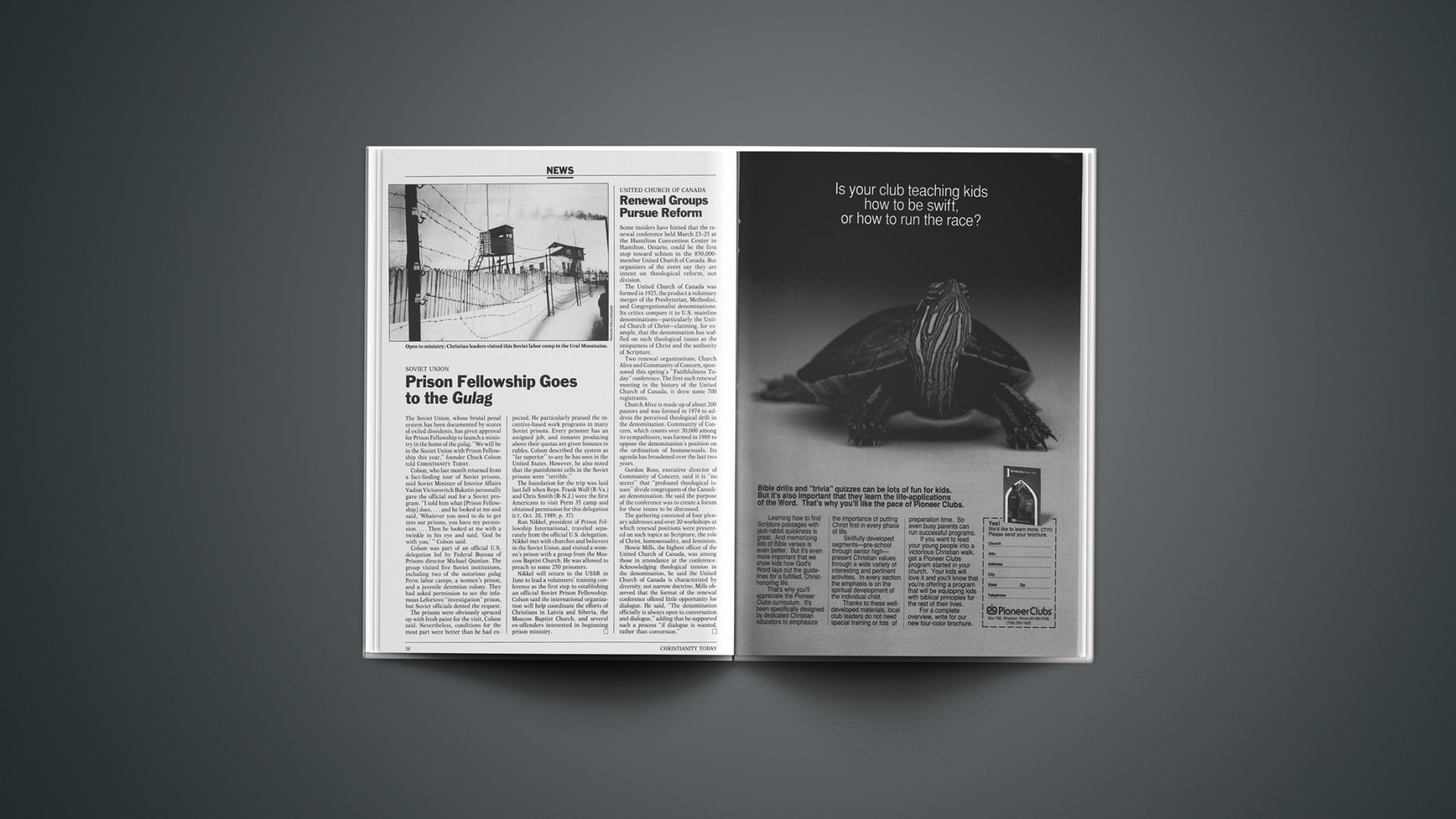Some insiders have hinted that the renewal conference held March 23–25 at the Hamilton Convention Center in Hamilton, Ontario, could be the first step toward schism in the 850,000-member United Church of Canada. But organizers of the event say they are intent on theological reform, not division.
The United Church of Canada was formed in 1925, the product a voluntary merger of the Presbyterian, Methodist, and Congregationalist denominations. Its critics compare it to U.S. mainline denominations—particularly the United Church of Christ—claiming, for example, that the denomination has waffled on such theological issues as the uniqueness of Christ and the authority of Scripture.
Two renewal organizations, Church Alive and Community of Concern, sponsored this spring’s “Faithfulness Today” conference. The first such renewal meeting in the history of the United Church of Canada, it drew some 700 registrants.
Church Alive is made up of about 200 pastors and was formed in 1974 to address the perceived theological drift in the denomination. Community of Concern, which counts over 30,000 among its sympathizers, was formed in 1988 to oppose the denomination’s position on the ordination of homosexuals. Its agenda has broadened over the last two years.
Gordon Ross, executive director of Community of Concern, said it is “no secret” that “profound theological issues” divide congregants of the Canadian denomination. He said the purpose of the conference was to create a forum for these issues to be discussed.
The gathering consisted of four plenary addresses and over 20 workshops at which renewal positions were presented on such topics as Scripture, the role of Christ, homosexuality, and feminism.
Howie Mills, the highest officer of the United Church of Canada, was among those in attendance at the conference. Acknowledging theological tension in the denomination, he said the United Church of Canada is characterized by diversity, not narrow doctrine. Mills observed that the format of the renewal conference offered little opportunity for dialogue. He said, “The denomination officially is always open to conversation and dialogue,” adding that he supported such a process “if dialogue is wanted, rather than conversion.”










